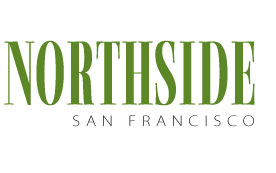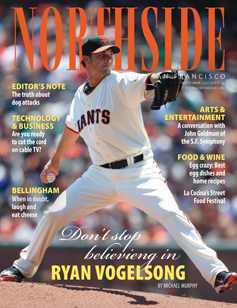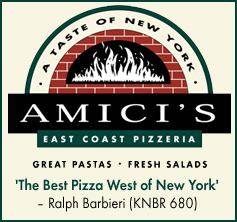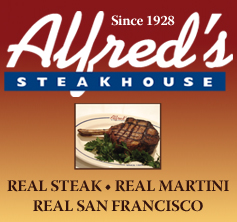| |
|

EDITOR'S NOTE
May all your days be circus days
by Susan Dyer Reynolds
It was a Thursday morning like any other since November of last year when my father came to live with me. I shuffled into the kitchen, my faithful pit bull, Jasmine Blue, at my side. I warmed some milk, mixed in ample Ghirardelli cocoa, and poured it into the plastic clown cup. I added a handful of mini marshmallows, Jazzy grabbed her big stuffed pink bunny, and we headed downstairs to the garden room. When I opened the door, I started to say, “Here’s your hot chocolate … ,” but before I could finish, I saw that my father was on the floor next to his bed, on his knees, hands outstretched under the nightstand. The back of his neck was blue. I dropped the cup of cocoa, screamed, panicked, and began to cry hysterically as I dialed 911. “My father is on the floor, face down,” I gasped. “Roll him over,” the 911-operator instructed, “and I am going to talk you through CPR.” I let out another blood curdling scream, “I can’t! I’m afraid to move him … his neck is blue
… I think he’s …”
After what seemed like an eternity, sirens roared in front of the house. I ran out the back door and through the basement to meet the paramedics. “Stay out here with me please, miss,” the taller one said, placing his latex-gloved hand gently on my shoulder. The second paramedic rushed inside with his gear, but returned in short order. “I’m so sorry,” he said. “He’s gone.”
The next several hours are mostly a blur. There were firemen in and out, the police showed up, then the medical examiner; while he did his routine check downstairs, the two cops stayed upstairs with me. By then, Jazzy had come from my bedroom, where she went when I started screaming, and was sitting next to me on the sofa. “That’s a beautiful dog,” officer No. 1 said. I nodded. “This is a beautiful house,” officer No. 2 said. I nodded. Then officer No. 1 broke the uncomfortable air. “He was very lucky to go the way he did – in a room filled with things he loved, in a home with a daughter who loved him … we should all be so lucky …”
Looking back on his 76 years, my father’s life had been lucky indeed. He had a long if sometimes tumultuous marriage to my mother. After she passed away of a stroke, he met a wonderful woman named Kickie, whom he lived with in San Jose for many years.
Alcohol had always been his demon, and a few years ago he took a bad fall on the back of his head. His doctor at the veterans hospital told him that he was “genetically gifted” and should make a full recovery, as long as he didn’t drink again. That was the toughest part, but he was good for the first year, sipping his O’Doul’s. Truthfully, he was never the same after that fall. Dementia set in and ravaged his mind more rapidly than anyone expected. Already thin, he dropped to 112 pounds at 6 feet tall. Then he started drinking again. When he took a second fall, Kickie said she couldn’t take it any more. Two years older than he and being his full-time caretaker had taken a toll on her health. The V.A. recommended a nursing home in Santa Clara called Rose Garden Court. My father didn’t want to go, but I told him that he had to spend at least three months there, sobering up and gaining weight. If he did that, I would bring him to live with me in San Francisco.
Just in time for Thanksgiving, we checked him out – sober, 130 pounds, and looking better than he had in years. I filled his room with all of his favorite mementos – I had his autographed Ted Williams photo and his many original circus lithographs framed, and I decorated the shelves with photos of Kickie, his brother, and my mother, whom he talked about more and more in his later years. His stories were often funny – especially the ones about meeting my mom, and her surly Sicilian fisherman father.
My father came from a circus family – his father traveled with Ringling Bros. and Barnum & Bailey as the “backyard cook” for the performers, and, after playing basketball and flying planes for the Navy, my dad stepped into his shoes. My Uncle Dyer was an artist, and some of his circus art hangs in museums and in the home of John Ringling North.
My father and mother met during the winter in their home state of Rhode Island, and my grandfather was none too pleased. His little girl, Shirley, was beautiful and smart – homecoming queen as well as valedictorian – and had her choice of rich Newport boys wooing her. But it was my father’s wit, charisma and style that got to her – not that he wasn’t handsome, with his jet-black hair and baby blue eyes, but when he showed up for their first date wearing watermelon seersucker pants and blue suede shoes, he definitely stood out.
My grandfather thought he stood out, too, unlike the Newport boys who took her sailing and introduced her to their old-money families – he saw my father as a bum who would never amount to anything. When summer arrived, his fears were confirmed – after my mom had fallen hard, my father nonchalantly told her that he was leaving in a week to travel with the circus for the summer. Crushed, but still with that inimitable Italian spirit, she told him that if he did, she wouldn’t be there when he returned. A week later, my father joined the circus, and my mother took a job with Continental Airlines in New York.
Like most cocky guys, come fall, my dad was knocking on my grandfather’s door. “She moved and she doesn’t want to see you,” my grandfather said, and shut the door in his face. Before my dad could get down the driveway, my grandmother came running out. She put a piece of paper in his hand, “Here is her address,” she whispered, looking back to be sure my grandfather wasn’t watching. My father hopped the next train to Manhattan and showed up at my mother’s apartment. She wouldn’t let him in, so he stood below her window for an hour, professing his love for her. When the neighbors got annoyed, she relented.
Against my grandfather’s wishes, they married. My father swore he wouldn’t travel with the circus; instead, he informed my grandfather that he wanted to go to teaching school – in California. My grandfather made him promise that he would bring his little girl home every summer, and my father kept that promise as long as my grandfather was alive. He also eventually won my grandfather’s respect – he became a teacher, obtained two master’s degrees, invested wisely, and gave him the one thing he didn’t have – a granddaughter.
In his later years, my father talked fondly of our many summers in Rhode Island, spending time with my grandfather and me – going clamming, pulling up his lobster pots, and gorging at his famous clambakes on the beach. He would go on for hours about how beautiful and smart and humble and funny my mother was, even though when she was alive, he wasn’t very good at telling her those things. He also spoke a lot about serving in the Navy, of which he was very proud, about teaching physical education and coaching high school basketball and golf, and most of all, about the circus. We joked about how my boyfriends always called our Sunnyvale home “Clown House” because the walls were covered with photos of me as a child with various clowns, dwarfs and midgets.
Though his short-term memory had faded terribly – he referred to hot chocolate with marshmallows as “mushrooms on a stick” – his long-term memory remained sharp. And, though, like with my mother, he was never good at showing emotion, in private times he spoke of how much he loved Kickie, and how he missed waking up to her smile every morning. I tried to explain to him that, as much as Kickie loved him, it was just too hard for her to take care of him now. He would nod and say, “I know,” but I don’t think he really understood.
The day before he passed away, I took him to the Woodhouse Fish Company for some good old New England food. He ate like I hadn’t seen him eat in weeks, sucking down littlenecks on the half-shell and digging into a platter of fried Ipswich full-belly clams. That evening I had to finish my Ted Allen cover story for the July issue of Northside San Francisco, so I turned on The Music Man, which I had recorded on the DVR. He loved musicals and marching bands for the same reason he loved the circus – that childlike glee induced by a colorful spectacle – and when I came down to say goodnight, he was grinning ear to ear. “I love that,” he said, and then began to singsong, “76 trombones led the big parade … .” I kissed him on the forehead and told him that I loved him. “I’m really looking forward to visiting Kickie this weekend,” he said as Jazzy nuzzled his hand for a goodnight pat. “I’ll see you in the morning with your mushrooms on a stick,” I said, smiled and closed his door.
The medical examiner told me that he went peacefully; perhaps he sat up when he felt something wrong, started to stand and fell, but he was likely gone in a matter of seconds. Just weeks before, my father said, out of the blue, that he hoped when he went, it was quietly in the night, and he got his wish.
His only other wish was a military funeral. A small gathering of friends sat in the tiny chapel at Golden Gate Cemetery while the Honor Guard played taps to an outstretched American flag. At the end, two members ceremoniously folded the flag, and one knelt before me and laid it gently in my lap. I handed it to Kickie, who sobbed beside me, because I knew how much it would mean to her. There wasn’t a dry eye except for my dear friend Bill Knutson, who kept his composure to read a lovely piece he had written that included all the things my father loved. “Ed really was that little boy who ran away with the circus,” he said, and then he read the Naval Prayer. Afterward, we all headed back to the City to my father’s favorite restaurant, Fishermen’s Grotto No. 9 on the Wharf, where we told stories, laughed, ate crab, and toasted him – just the way he would have wanted it.
The house on Buena Vista seems empty and quiet without him; I still can barely spend time in the garden room, surrounded by all the things he loved, but not by him. The other night I finally sat down on his bed and said my own little goodbye with something he said often after he played a few tunes on his harmonica. The great baritone ringmaster, Harold Ronk, belted it out from center ring at the end of every show for three decades, and my father never grew tired of hearing it. “May all your days be circus days,” I said quietly, glancing around at the lithographs of elephants, clowns, monkeys, and tigers.
Edgar Reynolds wasn’t an easy man, but he was a good man, an honest man, and as down to earth a man as I will surely ever know. For all his successes as a sailor, an athlete, a teacher, and an investor, it was the little things, the childlike things that gave him the most pleasure. My mother would have said that was because he never grew up, which is true, but he loved life up to the very end, something I think we all, deep down inside, wish for ourselves.
E-mail: susan@northsidesf.com



|
|
|
|











